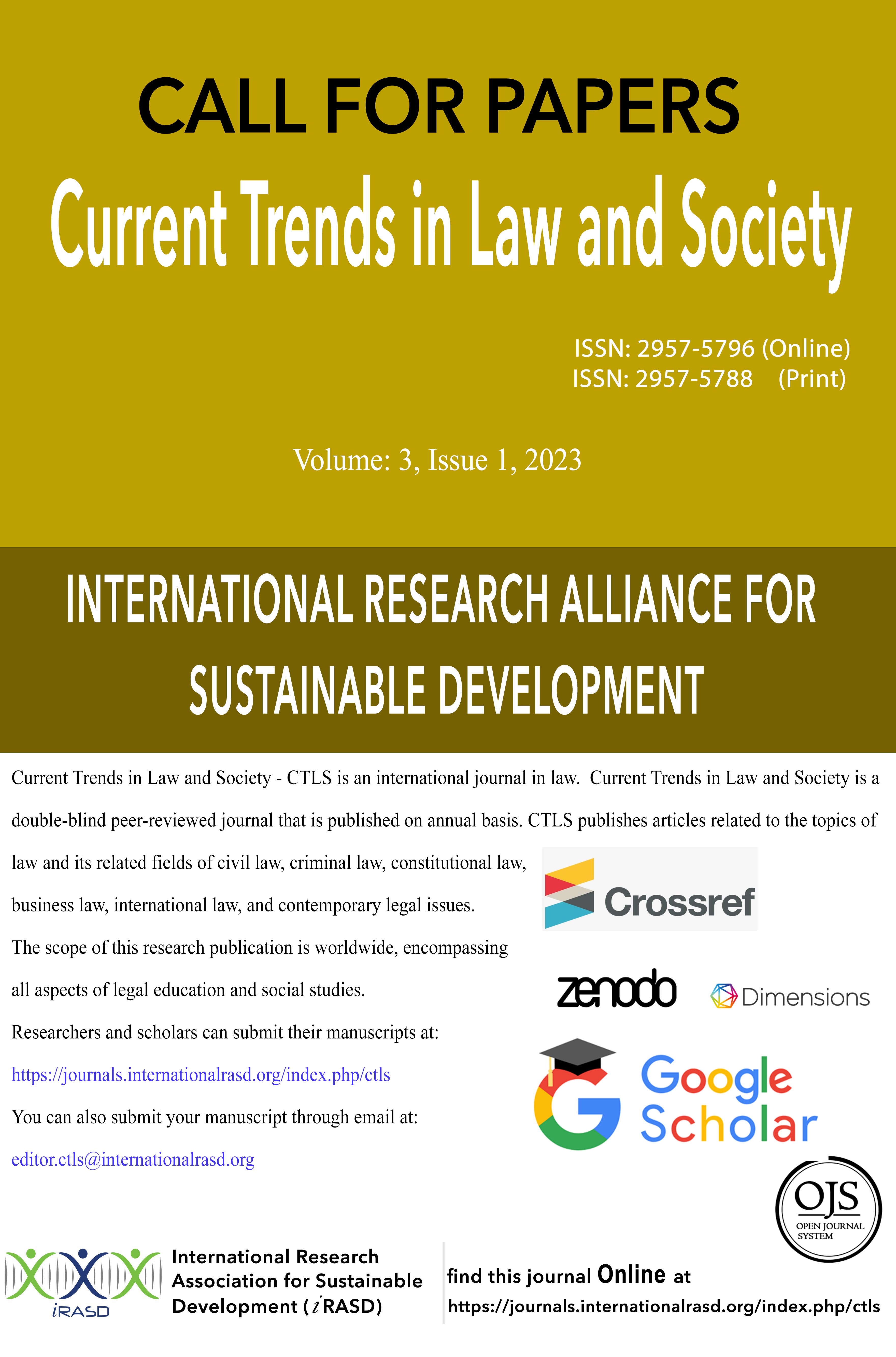The Role of White-Collar Crime Jurisprudence in Combating Corrupt Practices within Pakistan: A Contemplative Analysis
DOI:
https://doi.org/10.52131/ctls.2024.0401.0041Keywords:
Embezzlement, Occupational Crime, Corporate Crime, Money Laundering, Economic CrimeAbstract
This research investigates the application of white-collar crime jurisprudence in eradicating corruption in Pakistan. The objectives include analyzing the background and development of white-collar crime jurisprudence, exploring the applicability of existing anti-white-collar crime measures, reviewing the performance of the legal body responsible for combating white-collar crimes, examining the impact of military and fundamentalist interference, and suggesting measures to reinforce Pakistan's legal frameworks. The qualitative research method uses literature review, case analysis, and comparison, examining major legal transformations and case decisions. Field studies on major corruption scandals, such as the Panama Papers Scandal and Different Cases of NAB, assess the efficiency of the legal mechanism and enforcement bodies. The influence of the military and fundamentalists is considered based on evaluation cases where legal processes were interfered with. Recommendations are prepared based on the experience of other countries, international norms, and views of professional experts. The study concludes that political civil and military exigencies, fundamentalist perceptions, and political pressure have profoundly influenced the evolution of white-collar crime jurisprudence in Pakistan. Proposals for strengthening the legal base and state authority include stimulating the judicial branch's independence, carrying out deep legal and institutional changes, advocating for the openness and accountability of power, and developing cooperation with other nations.
Downloads
Published
How to Cite
Issue
Section
License
Copyright (c) 2024 Aftab Ahmad Sithari, Shahzada Aamir Mushtaq, Asma Jabeen, Shabnam Shahab

This work is licensed under a Creative Commons Attribution-NonCommercial 4.0 International License.







